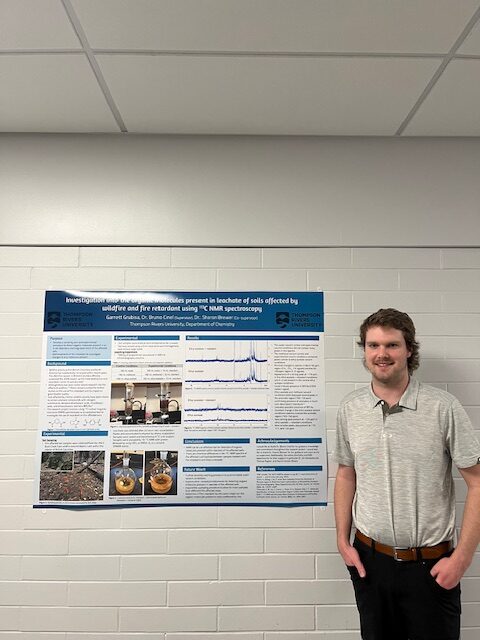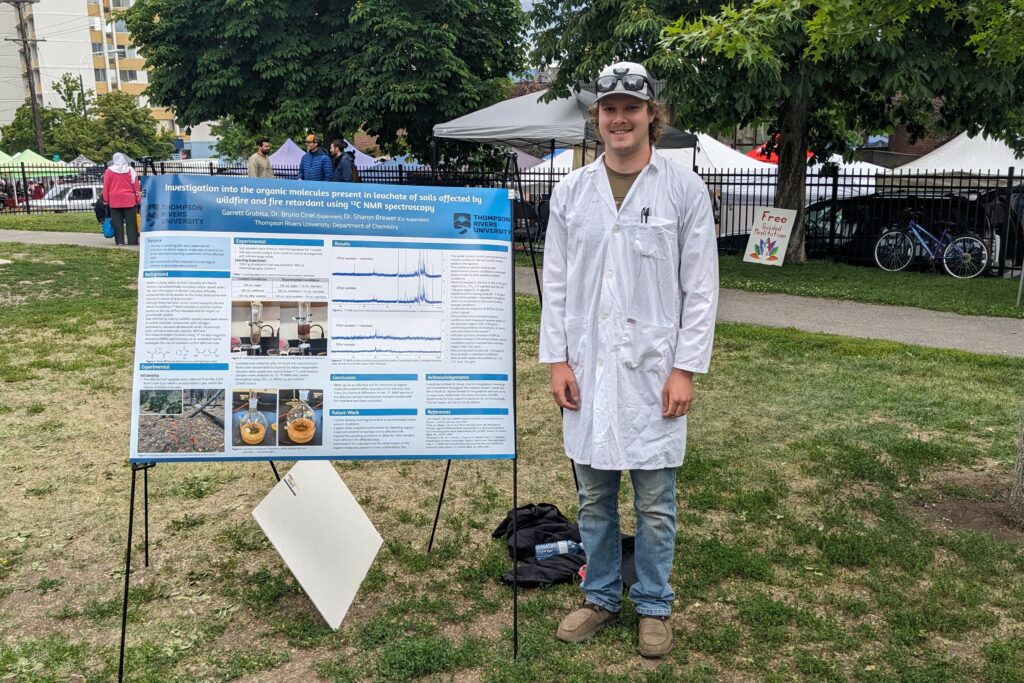INTRODUCTION.
My name is Garrett Grubisa, and I am a fifth-year student in the Bachelor of Science program majoring in environmental chemistry at Thompson Rivers University (TRU). I have been engaged with research in the chemistry discipline since second year. What first sparked my interest in chemistry and research was listening to Dr. Kingsley Donkor teach with such enthusiasm and dedication. He mentioned that research is for everyone and to give it a try because you’ll never know if you like it. Since then I have written many literature reviews of scientific papers and conducted small research experiments in lab. I was fortunate enough to conduct my own research project in my fourth year under the supervision of Dr. Bruno Cinel and Dr. Sharon Brewer.
My interests evolve around the environment, including the study of reactions, sources, transport and effects of chemical species. I am most interested in water quality and analysis of soils using new techniques. My recent research paper “ Investigation into the Organic Molecules Present in Leachate of Soils Affected by Wildfire and Fire Retardant Using 13C NMR Spectroscopy” utilized Nuclear magnetic resonance (NMR) spectroscopy as an analytical chemistry technique to determine changes in molecules within the soil under the effect of fire retardant, which has not been done to our knowledge.
My research experience has also been expanded through three co-op work terms. My first work term was at a mine in the environment department where I assisted with water management/quality research and wildlife research. My second and third work terms I assisted with genetic canola seed research and production, working in the field ensuring crop health and taking observations. These work terms have exposed me to how research is conducted within industry, preparing me for a career after a degree. I have also recently joined the science trajectory ambassador mentorship program as a senior mentor hoping to help first year students along their journey and encourage them to participate in research.
THE STANDARDS.
REFLECTIVE ESSAY.
This reflective essay describes my undergraduate research experiences at TRU over the last five years. I explain the skills I have learned and how undergraduate research activities have impacted my future plans.

